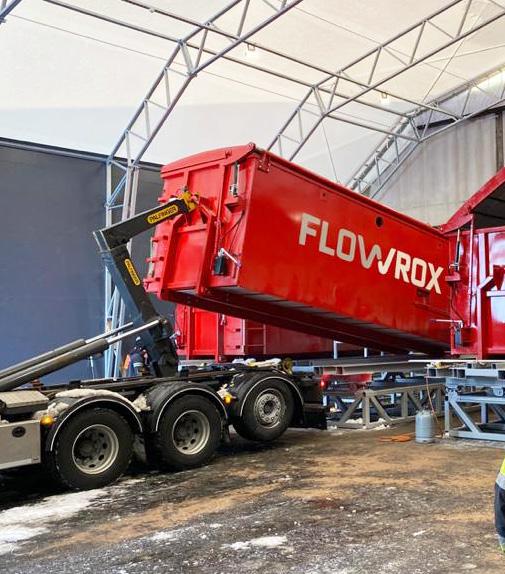
2 minute read
PIPES
Flowrox Plasma OxidizerTM aims to destroy 90-99 % pharmaceutical residues from the hospital wastewaters. With this installation, Flowrox is the trailblazer on a global scale as this will be the first-of-a-kind on the planet!
The system will degrade pharmaceuticals before the hospital sewage enters the public sewer network and the concentrations are diluted. The project has been confirmed for the local Central Hospital in Lappeenranta, Finland. The installation is funded by the City of Lappeenranta and the local Centre for Economic Development, Transport and Environment.
Wastewater treatment at the source prevails over end-ofpipe
In the testing phase, up to 29 of the monitored pharmaceuticals were observed presently in the waters. The Flowrox Plasma Oxidizer was proven to be a very energy-efficient technology to reduce the hospital’s load on the environment. Another advantage lies in treating the wastewater right at the source instead of waiting for the processing at the end-of-pipe. Treatment at the source is much more effective at a lower capacity than treatment at the centralized municipal wastewater treatment plant. How do pharmaceutical residues affect us? Pharmaceuticals in the environment pose a major threat. Residues of numerous pharmaceuticals are a global problem. They have been found in surface, groundwaters, and even in drinking water. The concentrations of these pollutants depend on several factors, such as the properties of the substance and the nature and distance of the source. Various painkillers, antibiotics and contraception medication are typically occurring pollutants. Accumulating in the environment, pharmaceuticals cause e.g. hormonal and behavioural dysfunctions in aquatic species. One of the most destructive outcomes is the development of bacterial resistance towards antibiotics and the evolution of so-called super bacteria. This may result in conventional antibiotics losing their effectiveness in medical use.
Why is Flowrox Plasma Oxidizer a great solution to remove pharmaceuticals from the wastewater?
Due to the unknown and varying cocktail of pharmaceuticals and their metabolites in the wastewater, a non-selective approach for their removal is required. Plasma oxidation is highly non-selective and proven effective against both the parent compounds and their identified transformation products. Plasma treatment thus always conveys more benefits than measured because it is practically impossible to monitor all the substances that are present and affected. The treatment is estimated to reduce the pharmaceutical load by 90-99% from substances that are not removed by municipal biological treatment. The effectiveness of the process is measured by analyzing pharmaceutical content from the process input and output streams. The solution will be a highly automated system that can be replicated in similar applications at other hospitals and point sources.
Flowrox, +27 (0) 10 590 8374, sales-rsa@flowrox.com, www.flowrox.com











